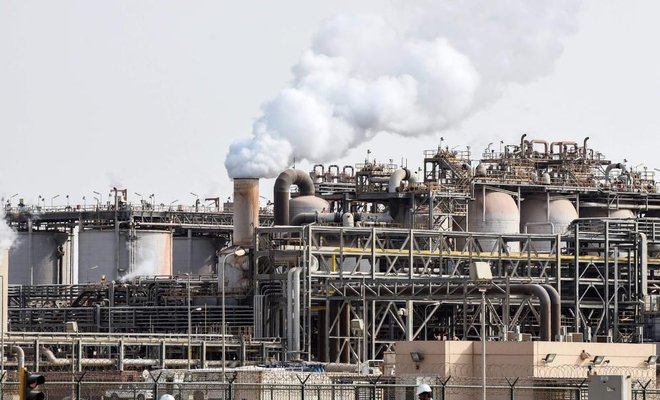
Saudi stock market hits highest close for 2016
Petrochemicals companies led Gulf stock markets higher on Thursday in response to OPEC’s first agreement on output cuts to prop up oil prices since 2008 — a deal that could allow governments to ease austerity policies slightly.
Expectations for the deal had already boosted oil and Gulf bourses on Wednesday, but the agreement included bigger production cuts than many analysts had expected, lifting oil prices higher on Thursday. Brent crude hit a six-week high of $52.73 a barrel before retreating slightly.
Saudi Arabia is to take the lion’s share of cuts, lowering production by almost 0.5 million barrels per day (bpd) to 10.06 million bpd, potentially hitting the Kingdom’s gross domestic product growth in coming quarters.
But the impact could be outweighed by a boost to Saudi state revenue from higher oil prices.
The original 2016 budget plan assumed oil revenue of SR334 billion ($89 billion). So a 5 percent output cut and a sustained 10 percent price rise after the OPEC deal could bring in an extra SR15 billion.
That would not in itself make a big difference to a budget deficit that many analysts believe will exceed SR250 billion this year, but it might encourage a modest easing of some planned austerity policies.
The OPEC deal could also help financial market sentiment in general.
“If the OPEC agreement holds, this will be a boon for Saudi Arabia in terms of revenues and, above all, market confidence,” said John Sfakianakis, director of economic research at the Jeddah-based Gulf Research Center.
The Saudi stock index gained 1.3 percent to 7,094 points, its highest close this year, in heavy trade. It is technically bullish after confirming on Wednesday a break of major technical resistance on April’s peak of 6,876 points. That triggered a double bottom formed by this year’s lows and pointing up to 8,400 points in the long term.
The petrochemicals sector, its profit margins most sensitive to oil, jumped 3.5 percent and five petrochemical producers were among the 10 most heavily traded stocks.
However, the market’s gains were broad-based, with 133 stocks rising and only 20 falling.
The Qatar index climbed 1.2 percent as petrochemicals company Industries Qatar added 3.7 percent and oil drilling rig provider Gulf International Services surged by 7.7 percent.
Commercial Bank of Qatar, which this week set out a turnaround plan aimed at stemming a dismal earnings run, jumped 3.2 percent.
Stock markets in Kuwait, Oman and Bahrain also rose.
UAE markets were closed on Thursday for a public holiday.
In Egypt, the index climbed 0.8 percent as exchange data showed that foreigners remained net buyers by a margin of about $9 million. They have been buyers every day since the Egyptian pound was floated on Nov. 3.
Global Telecom gained 2.7 percent and investment firm Qalaa Holdings added 4.1 percent.


























